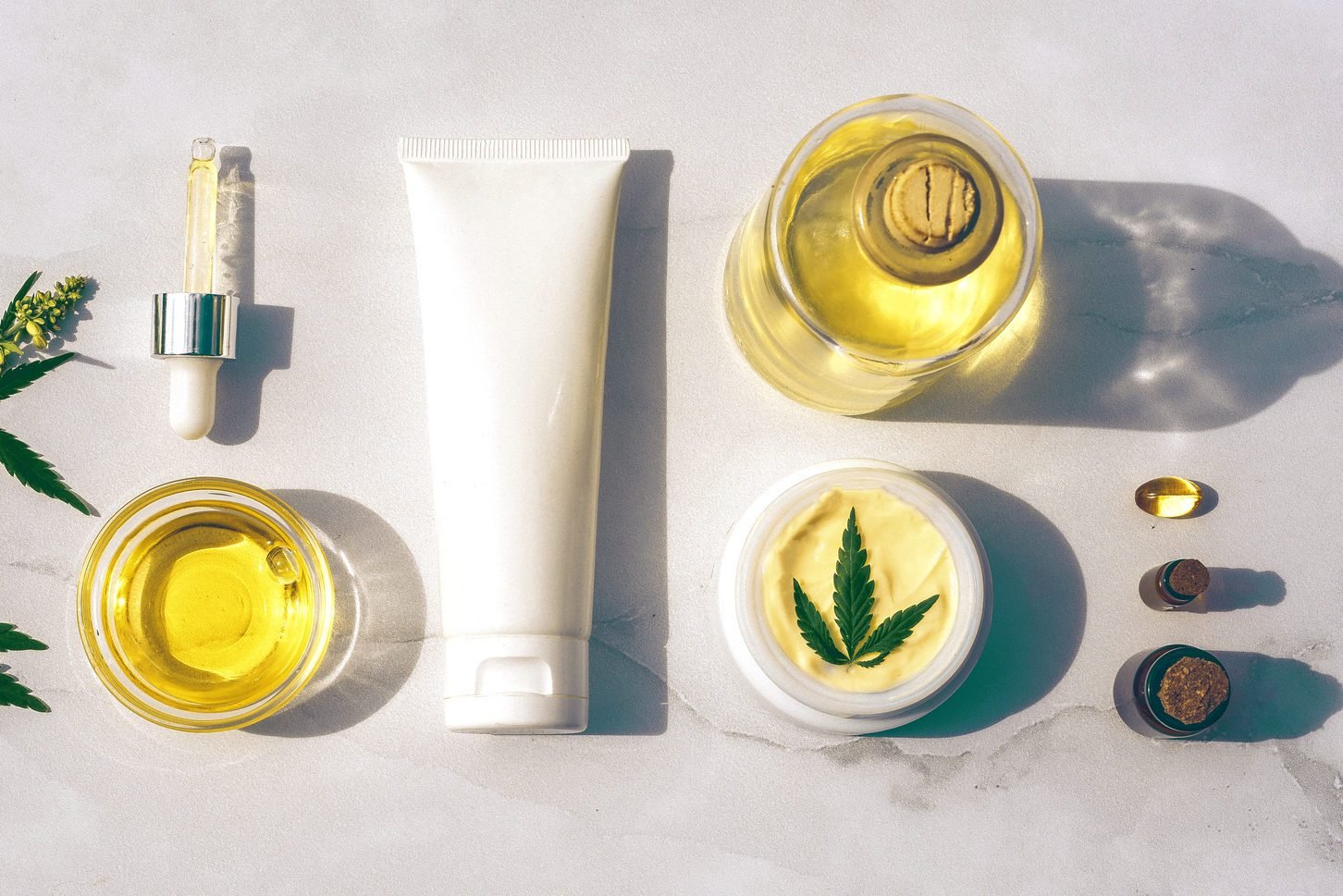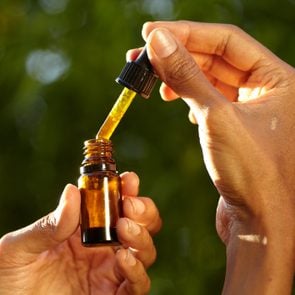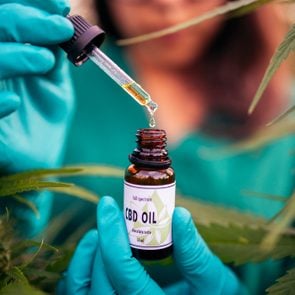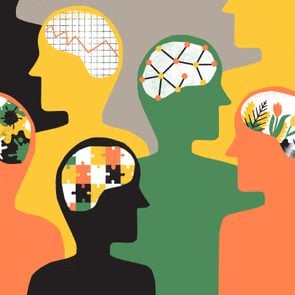What to Know About CBD and Depression
Updated: Mar. 02, 2021
CBD is believed to alleviate anxiety symptoms, but can it also help treat depression? Here's what science and medical experts say.
Our editors and experts handpick every product we feature. We may earn a commission from your purchases.
Does CBD work for depression?
Anxiety is one of the top reasons people say they use cannabidiol (CBD), so it makes sense that many people consider trying it for anxiety’s frequent companion: depression.
According to the National Institute of Mental Health, 17.3 million U.S. adults had one or more major depressive episodes in 2017, making it one of the most common mental health conditions in the country.
“Anecdotally, you hear it very frequently that depression is one of the reasons to use CBD,” says Martin A. Lee, co-founder and director of Project CBD and author of Smoke Signals: A Social History of Marijuana–Medical, Recreational, and Scientific. “There’s a significant gap in terms of clinical information, but I don’t think it’s a stretch to say that CBD has antidepressant properties.”
There is a popular class of antidepressant medication known as the serotonin reuptake inhibitors, or SSRIs, which includes fluoxetine (Prozac), sertraline (Zoloft), and more. Serotonin is a neurotransmitter that helps regulate emotions, feelings of well-being, and happiness. It’s believed that an imbalance in serotonin levels in the brain is what leads to depression.
The SSRIs help increase levels of serotonin in the brain but they do have several side effects, like insomnia, sexual dysfunction, and mood swings. (Here’s why your antidepressants may not be working.)
There’s anecdotal evidence about the benefits of CBD for depression, but what do science and medical experts really think? For one, CBD is generally thought to be safe, but it’s in a bit of a legal and regulatory gray area. Plus, CBD has its own side effects, and those can include liver problems, fatigue, and diarrhea.
Here’s what you need to know about CBD and depression.
CBD vs. THC
CBD is one of many cannabinoids, or chemical compounds, found in the cannabis plant. Unlike delta-9-tetrahydrocannabinol (THC), found in the same plant and in marijuana products, CBD does not make you high.
Most CBD in the United States comes from hemp, which has little or no THC. The 2018 Farm Bill made it legal to grow hemp as long as it contains no more than 0.3 percent THC. (Learn more ab0ut the differences between CBD and THC.)
What scientists know about CBD and depression
Most of the research on CBD and depression is limited to animal studies and personal reports. “There really hasn’t been any significant human research,” says Bonni Goldstein, MD, medical director and owner of Cannacenters and author of Cannabis is Medicine: How Medical Cannabis and CBD are Healing Everything From Anxiety to Chronic Pain.
Lab animals given CBD as part of research studies have behaved in ways that suggest CBD had an antidepressant effect, according to a review of animal studies published in CNS & Neurological Disorders: Drug Targets.
Typically, though, this type of preliminary study isn’t proof something works but forms a basis for more studies in humans, which experts hope will be conducted.
Can CBD lessen depression?
Although there’s no proof yet, it does make sense that CBD could help depression. In a review published in CNS & Neurological Disorders: Drug Targets, scientists reported a link between depression and dysfunction in the endocannabinoid system in the brain’s hippocampus region (which plays a role in memory), explains Lee.
The endocannabinoid system is one of many pathways through which neurons communicate. There are naturally occurring, or endogenous, cannabinoids that play a role in that communication.
Some clinical studies have noted low endogenous cannabinoid levels in women with chronic depression, Lee adds. And the American Psychiatric Association (APA), which opposes the use of cannabis in medical treatment, notes in a 2019 study in Psychiatric Services, that CBD does interact with the neurotransmitter serotonin, a lack of which is associated with depression.
(Here are some vitamins for depression to boost your mood.)

Is CBD safe?
Though CBD is generally considered safe, it’s important to remember that commercially available products are not well regulated.
In a 2017 study published in JAMA, researchers tested 84 CBD products and found that only 30 percent were labeled accurately.
Even if the label is correct, you need to be aware that CBD can react with certain other medications. Visit the National Library of Medicine for a full list of potential interactions.
Is it legal to buy CBD?
Epidiolex, a drug that treats two rare forms of childhood epilepsy, is the only drug containing CBD that has been approved by the U.S. Food and Drug Administration (FDA). CBD products found online and on store shelves occupy a legal gray area. Where your CBD comes from—hemp or marijuana—makes a difference.
Thirty-six states, plus the District of Columbia, Puerto Rico, Guam, and the U.S. Virgin Islands, have legalized medical marijuana (which contains CBD), according to the National Conference of State Legislatures. The U.S. Drug Enforcement Administration still considers marijuana a Schedule I controlled substance. In other words, CBD that comes from marijuana is still illegal as far as the feds are concerned.
CBD from hemp is regulated differently. With the 2018 Farm Bill, hemp products, including CBD, that contain no more than 0.03 percent THC are not considered controlled substances under federal law. (Some states restrict buying hemp-based CBD products.)
(Here’s everything you need to know about CBD for seizures.)
CBD and depression medication
Even though there is some preliminary evidence that CBD may play a role in alleviating depression, the best way to treat depression with CBD products is another question, says Lee.
A priority: If you’re already taking medications, don’t stop. “My general rule of thumb is always to leave your medication as is and add in the CBD,” says Dr. Goldstein. “You should always discuss with your doctor or pharmacist to make sure there are no drug interactions.”
So if you do decide to try it, only do so in consultation with your doctor.
The APA opposes the use of cannabis to treat post-traumatic stress disorder or as a medication with the exception of the FDA-approved Epidiolex.
The association has issued no specific statement on CBD (which is just one component of cannabis) but expressed concern that there are no dosing guidelines for CBD and that people may delay conventional treatment, which could worsen an existing condition.
Types of CBD products
There are a mind-boggling array of CBD products available. They include CBD edibles (like chocolate), CBD capsules, CBD oils and tinctures, skin creams, tea, and even suntan lotion. Each has its own pluses and minuses in terms of how long it takes to act and how long the effect lasts.
Some people like to use CBD vape oil, but be aware that there may be risks to this practice, such as EVALI (e-cigarette or vaping product use-associated lung injury)—lung damage related to unregulated vaping products.
CBD products come in three main forms:
Full-spectrum CBD: This contains all of the components of the hemp plant (Cannabis sativa), including CBD and small traces of THC and terpenes, which are plant compounds.
Broad-spectrum CBD: This includes all components except THC.
CBD isolates: This is the purest form of CBD and only contains CBD.
Because full- and broad-spectrum products contain many ingredients, Lee says they seem to be more effective.
How to select a CBD product
If you’re considering taking CBD for any reason, it’s best to work with a licensed medical professional or a licensed dispensary to help you find the right product and the right dose. Regardless, you’ll raise your chances of success and lower any risks if you follow these guidelines:
- Make sure the products come with a certificate of analysis. That’s proof that a third party lab has done independent testing and verified the ingredients on the label.
- Beware of claims that a product can treat a specific condition.
- Only buy U.S.-grown products.
- Make sure there’s a way to contact the company if you have questions or need more information.
The bottom line
While there’s limited evidence that CBD may help with depression, the clinical research isn’t there yet. If you decide to try CBD for depression, don’t stop any other medications you’re taking and always talk with your doctor to decide the best course of action.



